The Sports Junkies
Book of Trivia,
Terms, and Lingo
Books by Harvey Frommer
SPORTS
Old Time Baseball
The Sports Junkies Book of Trivia, Terms, and Lingo
Red Sox vs. Yankees: The Great Rivalry (with Frederic J. Frommer)
A Yankee Century
The New York Yankee Encyclopedia
New York City Baseball: The Last Golden Age, 1947-1957
Rickey and Robinson: The Men Who Broke Baseballs Color Line
Throwing Heat: The Autobiography of Nolan Ryan
Red on Red: The Autobiography of Red Holzman
Running Tough: The Autobiography of Tony Dorsett
Basketball My Way: Nancy Lieberman
Shoeless Joe and Ragtime Baseball
Growing Up at Bat: The 50th Anniversary Book of Little League Baseball
A Baseball Century: The First Hundred Years of the National League
ORAL HISTORIES (WITH MYRNA KATZ FROMMER)
It Happened in the Catskills
It Happened in Brooklyn
Growing Up Jewish in America
It Happened on Broadway
It Happened in Manhattan
The Sports Junkies
Book of Trivia,
Terms, and Lingo
What They Are, Where They Came from,
and How Theyre Used
Harvey Frommer

Copyright 2005 by Harvey Frommer
First Taylor Trade Publishing edition 2005
This Taylor Trade Publishing paperback edition of The Sports Junkies Book of Trivia, Terms, and Lingo is an original publication. It is published by arrangement with the author.
All rights reserved.
No part of this book may be reproduced in any form or by any electronic or mechanical means, including information storage and retrieval systems, without written permission from the publisher, except by a reviewer who may quote passages in a review.
Published by Taylor Trade Publishing
An imprint of The Rowman & Littlefield Publishing Group, Inc.
4501 Forbes Boulevard, Suite 200
Lanham, Maryland 20706
Distributed by National Book Network
Library of Congress Cataloging-in-Publication Data
Frommer, Harvey.
The sports junkies book of trivia, terms, and lingo : what they are, where they came from, and how theyre used / Harvey Frommer1st Taylor Trade Publishing ed.
p. cm.
ISBN: 978-1-58979-255-5
1. SportsDictionaries. I. Title.
GV567.F75 2005
796'.03dc22
2005009903
 The paper used in this publication meets the minimum requirements of American National Statndard for Information SciencesPermanence of Paper for Printed Library Materials, ANSI/NISO Z39.48-1992.
The paper used in this publication meets the minimum requirements of American National Statndard for Information SciencesPermanence of Paper for Printed Library Materials, ANSI/NISO Z39.48-1992.
Manufactured in the United States of America.
To
Arielle Cecelia
A.C.
the newest Frommer
with much love
Acknowledgments
A work of this sort would never have surfaced without the many helpers and supporters who were there for me throughout this project. At the top of the list is my son (and sometimes sports coauthor) Frederic J. Frommer whom I especially thank for his careful review of the baseball section. Then there is the team on the benchMyrna, Jennifer and Jeff, Ian and Laura, and Michelea big thank you to all.
Special thanks to Christopher Strouthopoulos and Kristen M. Getchell for their interest, suggestions, and reading of sections of the manuscript.
At Taylor, genial Rick Rinehart was enthusiastic about this book from the start and was helpful in its progress through all the stages.
Introduction
Sports language comes and goes with the times. It is a language that grows each year, and changes and attempts to adjust to the ever expanding world of athletics that it describes. It is technical yet colorful, simple yet tremendously involveda language for those who are inside sports and at the same time an important part of the general cultural vocabulary.
Some expressions live out their time because of the popularity of the figures who used them. Mel Allens How about that? and Red Barbers In the catbird seatphrases that marveled at a baseball players accomplishmentsdeparted the sports language scene when Mr. Allen and Mr. Barber left their play-by-play announcing roles. Other expressions live on much past their time like Say It Aint So, Joea comment attributed to a small boy wanting to hear from Shoeless Joe Jackson that he was not guilty.
Within the clubhouses and in their private conversations with each other, athletes use another level of language. This sports speech, this special language, provides another view of sports. Some of these terms are also included in this almanac.
A baseball player who hits the ball hard and with straight force is one who manufactures a frozen rope. A basketball player who shoots in your face is one who attempts to show up another player who is guarding him. A loose and relaxed basketball player shakes and bakes. One who picks someones pockets is able to steal the basketball from another player. Such terms and expressions no longer are inside. Each time a sportscaster or sportswriter hears them, theres a good chance that they become public, part of the culture, and part of the sports language at large.
How many know the differences among the following: penalty (football), penalty kick (soccer), penalty killer (hockey), penalty shot (basketball), penalty box (hockey), penalty goal (soccer), penalty kick mark (soccer), penalty shot (hockey), penalty timekeeper (hockey)?
How many can explain the differences among these terms from basketball: free throw, bonus free throw, free-throw area, free-throw circle, free-throw lane, free-throw line, freewheeling offense?
How many know the sports meanings and the sports they belong to of each of the following: own goal, goal area, goal-area line, goal-line stand, goal average, goal crease, goalie, goal judge, goalkeeper, goal kick, goal-less, goal light, goal mouth, goal post, goaltender, goaltending?
Can you identify the sports and the meanings of the following colorful terms: gold, yellow card, red card, black flag, checkered flag, red flag, body in white, greens fee, gold or red handkerchief, red-dog, blue line, red line, black belt, blueprint, yellow light?
Individual sports have a language personality all their own. A lot of fencing is spoken in the accents of Italian and French. The racquet sports are all related, and there is a good deal of inbreeding of language among them. Football has a military aura surrounding its language, while socceror what the world outside the United States refers to as footballis characterized by an international flavor and many British expressions. Bowlings language contains a quaint and colorful application of this sports reliance on words taken from the general cultural vocabularyCincinnati, Christmas tree, and mother in-law, for example. Skateboarding, with its origins in surfing (in fact, the sport is called sidewalk surfing), is filled with expressions borrowed from surfing.
And if there were a championship trophy awarded for the richest and most varied sports language, baseball would win it easily. More than one hundred years old, played over a very long season in all sections of the United States, baseballs language is aimed at explaining and describing the nuances of our national game.
Next page

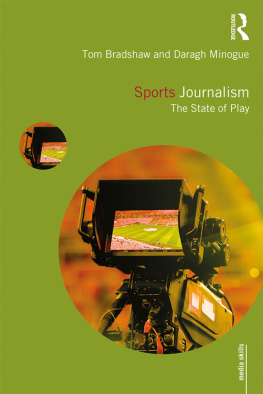


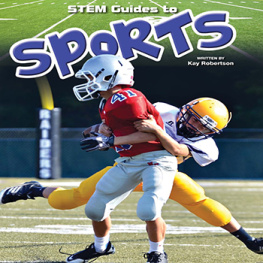
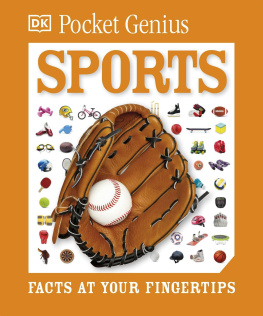
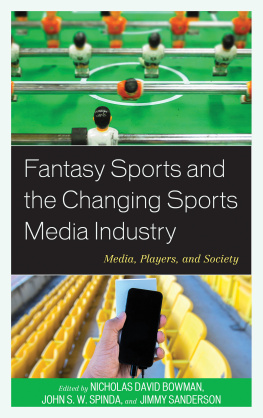
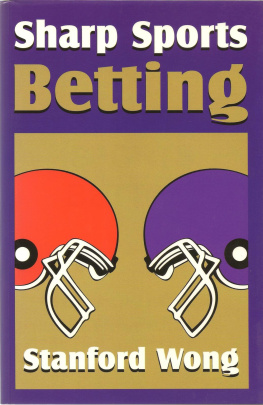
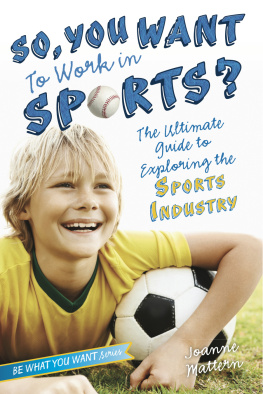
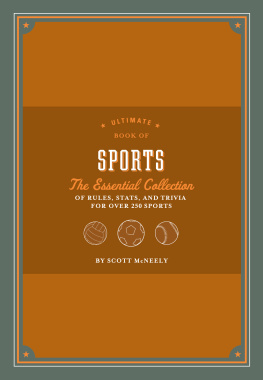

 The paper used in this publication meets the minimum requirements of American National Statndard for Information SciencesPermanence of Paper for Printed Library Materials, ANSI/NISO Z39.48-1992.
The paper used in this publication meets the minimum requirements of American National Statndard for Information SciencesPermanence of Paper for Printed Library Materials, ANSI/NISO Z39.48-1992.